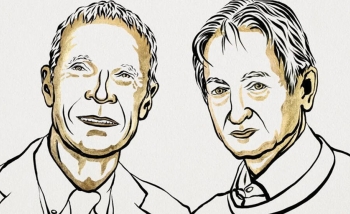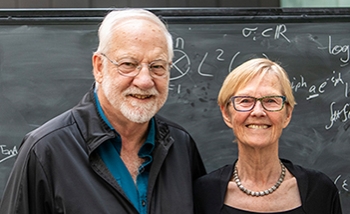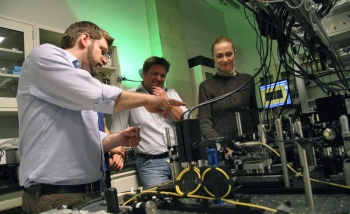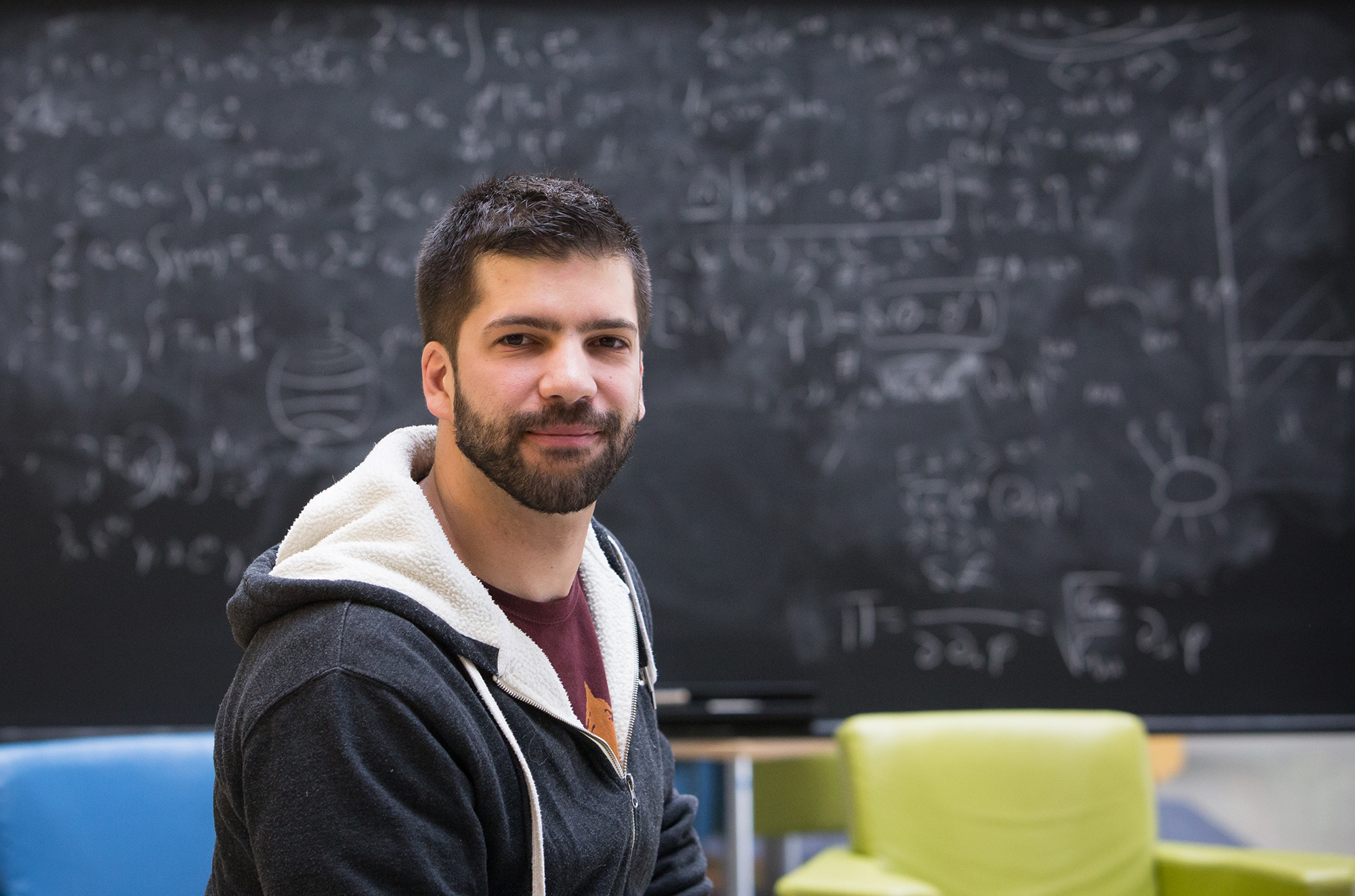Former Perimeter and University of Waterloo PhD student Giacomo Torlai has been awarded the Nicholas Metropolis Award for Outstanding Doctoral Thesis Work in Computational Physics. The American Physical Society lauded Torlai “for his pioneering achievements in adopting machine learning technology, especially restricted Boltzmann machines, into the field of condensed matter and quantum information physics.”
Now a postdoctoral research fellow at the Flatiron Institute in New York, Torlai came to Waterloo in 2014 specifically to do his PhD with Perimeter Associate Faculty member Roger Melko. He was interested in the quantum information side of condensed matter and many-body physics, which dovetailed nicely with Melko’s research at the time.
Together, the pair explored a Monte Carlo strategy for decoding and quantum error correction but, after many months of work, discovered that their approach quickly grew in complexity and became unfeasible. What could have been seen as a failure turned out to be a blessing in disguise: Torlai shifted his focus to the rapid developments emerging from burgeoning machine learning communities around the world, and found himself inspired.
Torlai revived a powerful stochastic (randomly determined) neural network known as a “restricted Boltzmann machine,” which had played a central role in the machine learning revolution earlier in the decade, but had since fallen out of fashion.
He showed that the networks could be used to represent physical processes in condensed matter physics, which sparked intense interest in the field that continues to this day.
Spurred by the success, he then returned to the first problem he had tried to tackle during his PhD and applied the new method, solving the quantum decoding problem with machine learning. Torlai continued to expand and repurpose his work with neural networks, leading the charge in a new field that combines computational physics, machine learning, and experimental quantum physics.
His thesis, which is titled “Augmenting Quantum Mechanics with Artificial Intelligence,” has established Torlai as an early leader in an emerging field, according to Melko.
“Giacomo is highly deserving of this award for his pioneering achievements,” Melko said. “As we work as a community to integrate machine learning into our current research infrastructure in condensed matter and quantum information physics, both theoretical and experimental, Giacomo Torlai’s thesis will stand out for posterity.”
Further exploration
About PI
Perimeter Institute is the world’s largest research hub devoted to theoretical physics. The independent Institute was founded in 1999 to foster breakthroughs in the fundamental understanding of our universe, from the smallest particles to the entire cosmos. Research at Perimeter is motivated by the understanding that fundamental science advances human knowledge and catalyzes innovation, and that today’s theoretical physics is tomorrow’s technology. Located in the Region of Waterloo, the not-for-profit Institute is a unique public-private endeavour, including the Governments of Ontario and Canada, that enables cutting-edge research, trains the next generation of scientific pioneers, and shares the power of physics through award-winning educational outreach and public engagement.
You might be interested in




